Alyssa Simone Wakefield
Posts tagged with Library Student Engagement Ambassadors
Showing 1 - 10 of 24 items
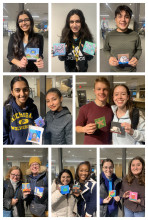
On Friday, November 21st, the library Student Ambassadors hosted a Sip and Paint in the third floor Shapiro Gallery!
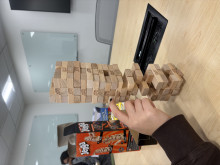
On Thursday, November 6th, the library student ambassadors hosted a spectacular Board Game Night on the 4th floor of the Shapiro Library!
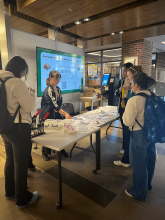
The Library Student Ambassadors hosted Pronoun Pin Day earlier this month in the Shapiro Lobby on Friday, October 10th, otherwise known as National Coming Out Day!
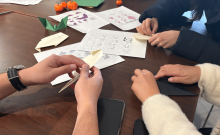
This Halloween, we went deep into the Hatcher Library stacks and the Hatcher Library lore with our Hatcher Haunts tours.
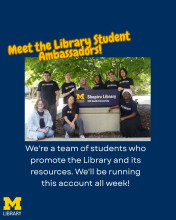
The Library Student Ambassadors hosted an “Instagram Takeover” of the @umichstudents Instagram account last week, sharing past and upcoming library events, what students can use the library for, as well as library resources students have access to.
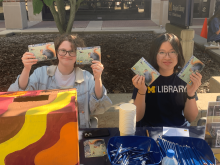
The library Student Ambassadors hosted the annual Postcard Writing event right outside the Shapiro Undergraduate Library on Friday, September 26th from 2-5 PM.
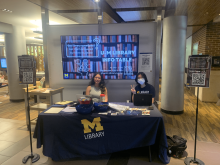
The Library Ambassadors held Info Tabling sessions for all students to learn more about the services the library has to offer.
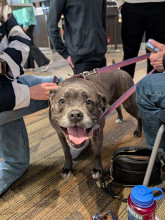
Students hung out with furry friends, made puppy-themed buttons, and picked up cool swag, like posters, sticky notes, and candy!
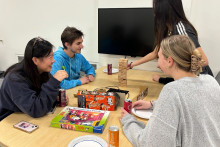
Students enjoyed an evening of board and video games in the Computer and Video Game Archive. Pop into the CVGA to play, and tell them the Ambassadors sent you!
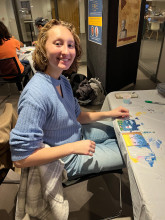
Students enjoyed (non-alcoholic) beverages as they created masterpieces on mini canvases at this artistic gathering.